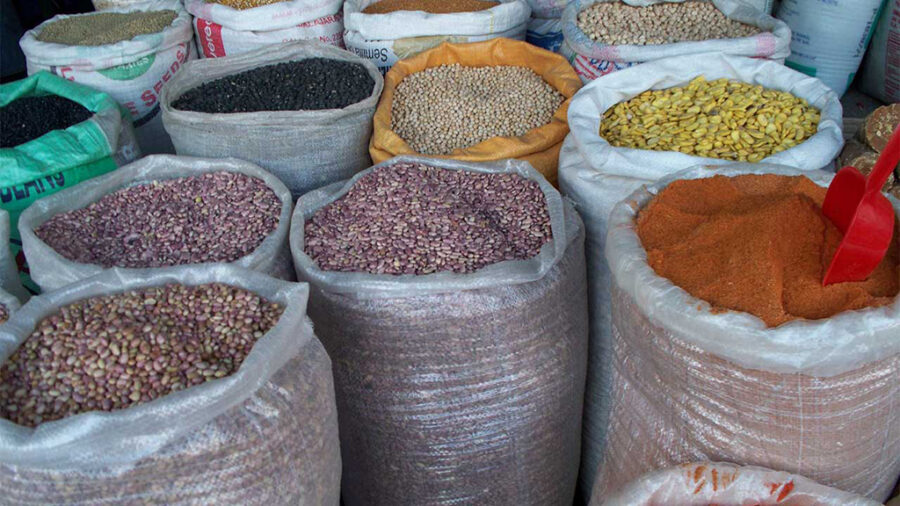

Prices of food items have continued to rise in Bwari, FCT, amidst the fuel and naira scarcity, leaving residents groaning under intense hardships.
A correspondent of the News Agency of Nigeria (NAN), who spoke with the residents on Friday, gathered that prices of foodstuff have continued to rise unabated as against the drop in prices in states and rural areas.
Mrs. Talatu Danjuma, a tomato seller at the Bwari market, said that the price of the commodity had gone higher within a short period.
“A basket now sells for N16,000 as against N5,000 and N6,000,” she said.
Danjuma attributed the hike to the high cost of transporting goods from the farms, as a result of the fuel scarcity.
Mrs. Blessing Yohanna, a yam seller, on the other hand, expressed worry that the naira scarcity was affecting her business as most of the transactions were now cashless, and traders in the rural areas would not accept electronic transfers.
“About N30,000 of my money is still hanging due to network issues surrounding transfers.
“Five tubers of yams which we used to sell for N2,500, now goes for N3,000 because we have to include POS (Point of Sale) charges,” Yohanna said.
Another resident, Mr. Philip Abang, condemned the exorbitant charges by the POS operators, describing it as outrageous.
“Queues are on the increase daily in banks and filling stations, situations that are seriously affecting businesses.
“I thought the Supreme Court’s pronouncement on the return of the old notes of N500 and N1,000 was going to alleviate our plight this country.
READ ALSO: Boko Haram terrorists kill 35 fishermen in Borno
“It is unfortunate that people are still rejecting the old notes and the new money is not in circulation up till now,” Abang said.
He, therefore, appealed to the Federal Government, to take urgent steps aimed at tackling the challenges, with a view to saving the masses.
“I have to be at the bank by 4a.m., to pick a number, in order to get cash, it is that bad,” Abang said.
A survey by NAN also revealed that the prices of foodstuff generally have gone a little higher or remain static, as a bottle of palm oil which sold for N1,000, now sells for N1,200.
A bag of rice, however, still sells for between N37,000, and N45,000 depending on the brand, or if it is local or foreign.
A cup of egusi (melon), now sells for N400 instead of N300, and a crate of eggs is now N2,500 as against N2,200, and a kilo of beef now goes for as much as N3,500.
A driver was injured after his truck plunged from the Pen Cinema Bridge in the…
Crystal Palace reached the FA Cup final for the first time in nine years as…
Ipswich were relegated from the Premier League after a 3-0 defeat against Newcastle at St…
Pope Francis was laid to rest at the Basilica of Saint Mary Major on Saturday,…
United States President Donald Trump and Ukrainian President Volodymyr Zelensky, in Rome for the funeral…
The Kaduna State Government will convene an education summit as part of its strategy to…
This website uses cookies.